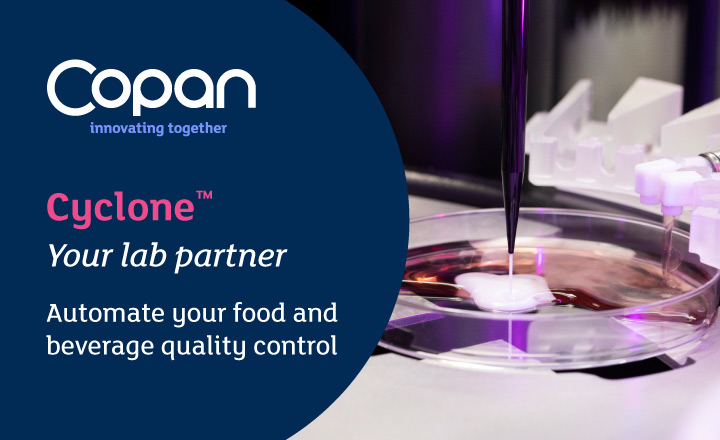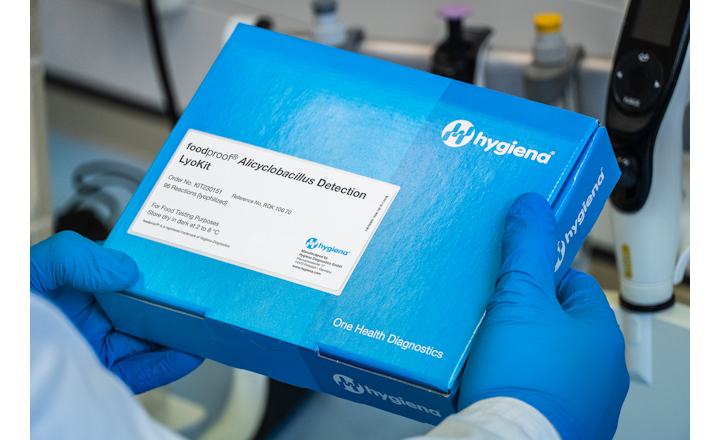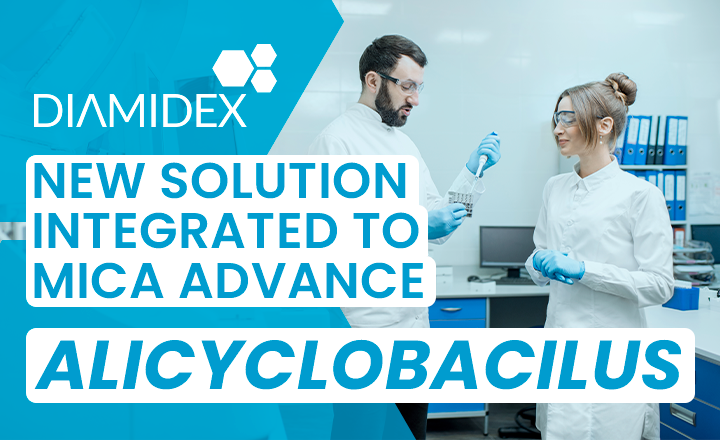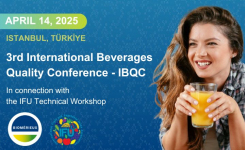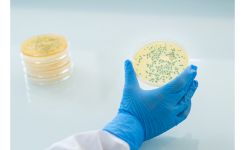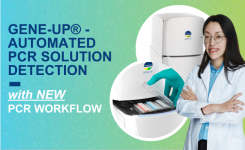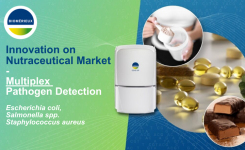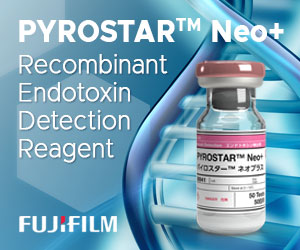There is good news for today’s juice and concentrate quality controllers. With bioMérieux’s GENE-UP® PRO ACB manufacturers can now test for Alicyclobacillus (ACB) and guaiacol producing ACB in a single test with next-day results, a first-of-its-kind for quality control in the beverage industry.
GENE-UP® PRO ACB - A decision-making solution for beverage producers who rely on ACB and guaiacol-free production lines to avoid spoilage, inventory loss and disruptive workflows.
Beverage producers live tenuously on the strength of their flavors. Brands can grow or wither based on their signature aromas, tastes and aftertastes; one skunky sip diminishes brand reputation and profits.
A 2017 survey published in the International Journal of Systematic and Evolutionary Microbiology revealed that more than 97% of participants indicated that spoilage mattered “a lot” or “a great deal” in brand protection and close to over 90% of juice manufacturers surveyed indicated that better control over microbial spoilage would moderately to greatly increase profits and reduce waste.
The cause of a flavor imbalance can often be linked to the presence of Alicyclobacillus (ACB) and its by-product, guaiacol. Alicyclobacillus spp. are strictly aerobic, acidophilic and thermophilic gram-positive spoilage bacteria. While Alicyclobacillus bacteria can affect juice quality and lead to spoilage, they are not a food safety concern.
In the fruit juice industry, in particular, it has been shown to produce significant amounts of guaiacol which alter the organoleptic properties of fruit juices. Because most common pasteurization techniques or other processing treatments using high-pressure do not deactivate its spores, Alicyclobacillus is particularly important to the fruit juice, fruit juice concentrates and beverage packaging industry.
Raw materials are a major source of contamination and should be controlled by both suppliers and juice and beverage producers. Testing for Alicyclobacillus is key for producers of fruit concentrates and sweeteners to avoid contamination of the full storage tank by adding a defective batch, hence ensuring the highest quality raw materials are supplied to the fruit and beverage processors.
Early detection of Alicyclobacillus is therefore fundamental for the sector as contamination can lead to a significant deterioration in quality and, consequent economic losses.
One of the challenges concentrate and juice manufacturers face is the time it takes to test for Alicyclobacillus (ACB) and guaiacol. Traditionally, following IFU #12 guidelines 5 to 7 days are required. Followed by another, 3 day confirmation for any presumptive positives. That’s a long time for inventory to be on-hold or for filling lines to be running without having information on potential risk — a headache for any production manager.
“Better understanding the structure of the Alicyclobacillus genus and the spoilage potential of individual species drives improvement in quality management decisions that reduce waste and improve customer satisfaction,” says Abigail Snyder, assistant professor of microbial food safety at the Cornell College of Agriculture and Life Sciences and senior author of that 2017 survey.
The Challenge of Traditional ACB Testing
ACB is without doubt a tricky organism. Pasteurization doesn’t always kill it, and it doesn’t always produce guaiacol, so traditional ACB screening doesn’t always identify spoilage. “Not all ACB cause product spoilage. It is off-aroma produced by ACB that is the real culprit in product spoilage, not simply the presence of ACB itself,” Snyder adds. To detect the flavor-altering guaiacol, a second enzymatic test must be performed.
Common spoilage testing requires a two-step system: an ACB screen, plus an enzyme screen. Not only do two tests increase the risk of human error, results return in 5 to 7 days while the product sits idle — using valuable refrigeration and storage space.
“When companies monitor just for the presence of ACB, they may make product disposition decisions that do not reflect the spoilage potential of that material. Better diagnostic tools that predict spoilage, not just ACB presence, could help address that challenge.”
The Advantages of One-Step ACB Testing
Even if considered as the main spoiler, Alicyclobacillus acidoterrestris is only one among other ACB species capable of producing guaiacol. But then not all Alicyclobacillus species are capable of guaiacol production. With so many what-ifs in ACB testing, the most efficient and accurate method is one test that provides next-day Alicyclobacillus and guaiacol producing ACB results. One-and-done ACB and guaiacol producing ACB detection — like the bioMérieux’s new GENE-UP® PRO ACB — eases workflow, minimizes human error and avoids false positives.
Traditional ACB testing methods require two tests with wait times of up to 7 days. The new GENE-UP® PRO ACB uses bioMérieux’s signature rapid PCR technology in one test protocol equivalent to the IFU #12 guideline with a wait time of 27 hours. Now with one single test, users can simultaneously screen raw ingredients and finished product for Alicyclobacillus spp. and guaiacol producing Alicyclobacillus.
By incorporating two tests into one, bioMérieux’s GENE-UP® PRO ACB packages their well established microbiological PCR detection into a standard workflow. This new single assay specifically developed for juice producers identifies the gene that is 100% correlated to guaiacol production. The GENE-UP® PRO ACB is an evidence-based innovation that addresses the challenge of predicting spoilage, not just ACB presence.
GENE-UP® PRO ACB offers the juice industry a truly predictive assay to reduce time-to-result and allow manufacturers to release product faster with the confidence it will retain the taste your consumers expect.
Click here for more or use the Request Information button below to connect directly with the supplier.



